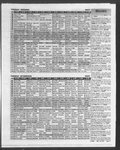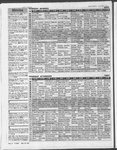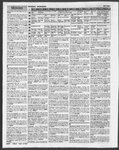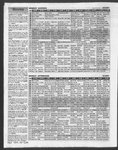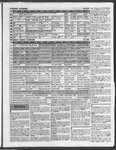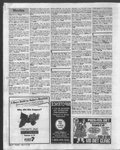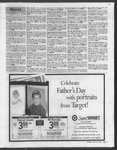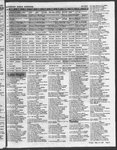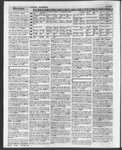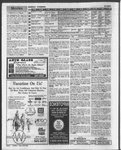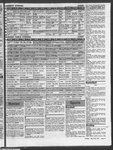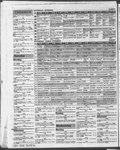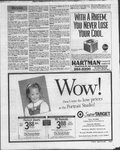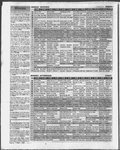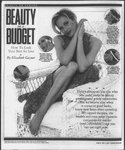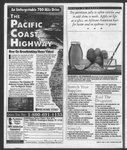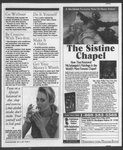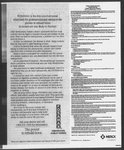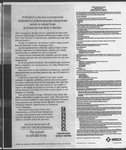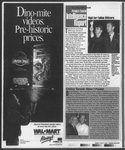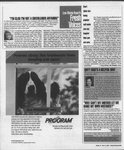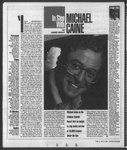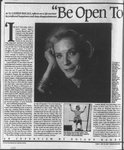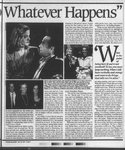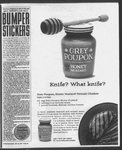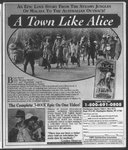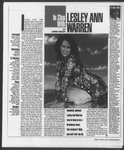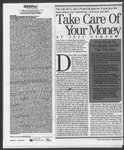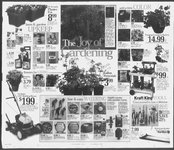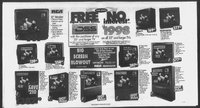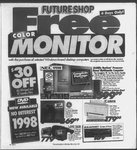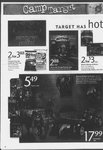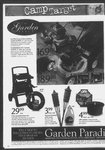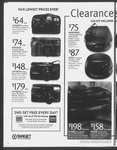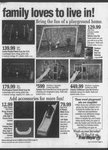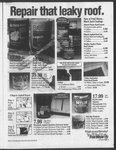| OCR Text |
Show Andre Braugher’s values as a husband,father and black man are always a part of what he does: He Won't Take A Role That's Demeaning BY GAIL NDRE BUCHALTER jf BRAUGHER, who plays Detective Frank Pembleton on NBC's Homicide: Life on the Street, was a bashful, overweight child who grew up thinking he'd neverfit in. “T suffered from loneliness that plagues heavy kids,” he told me. “I was always afraid I'd say the wrong thing and do the wrong thing andthat people would make fun of me.” Iwas chatting with Braugher, 34,in “the box”(also knownasthe Interrogation Room)on the Baltimore set ofHomicide. Last year, Braugher was nominated for two Emmy Awards—oneforhis performance onthe series, another for his part i scholarship to an exclusive private school,St. Ignatius College Prep, where he maintained straight A’ he often would help mother, Sally, whobrought homepiecework from an electronic: ant. His father, Floyd, was aheavy-equipmentoperator. (Braugher has twohalf-brothers and half-sister. His mother’soldersonlived with them, while his father’s other son and daughter lived with their mothers.) knowit until I met affluent people at “J grew uppoor,” hesaid, “but I didn’t know wewere pooruntil I metaffluent peoplein high school.I vividly rememberliving in the basement apartmentof my aunt’s house. Eventually my family moved upstairs. Sometimes I was envious of others, other times ashamed of of poverty. But whatit really made me feel was a work hard, Education was going to afford me things.” in HBO’s The Tuskegee Airmen. He appeared in the-title role of Henry New York’s Shakespearein the Park and in Spike Lee’s docudrama Get on the Bus, about the Million Man March. NowI had turned the tables on Homicide’s tough interrogator, I was the one asking the questions. I wanted to find out what had transformed theinsecure, withdrawn child into a socially adept, successful adult. We spoke about such diverse topics ashis desire to adopt a child, the Million Man March,acting with his wife and his boyhood in Chicago. Howdid Braugherdeal with his childhood loneliness? “Tread a lot of books,” he answered, “I didn’t takelife in myteeth.” Braugher’s readinglist ranged from potboilers like Valleyofthe Dolls—whichhe found on his mother’s shelf—to seriousliterature by black writers. “They reflect my but I don’t remember eversaying, ‘I haveto read this author because he’s black,””he recalled. “I was justattracted to good novels Braugherwas his family’s “scholar baby,”he said with a smile. He won a rad Brauer with hi wie, Ari Brabeo, 0 “We havean instant rapport teatwe don't have to create,” he says. s Detective Frank Pembleton on NBC’s Homicide, Braugher wanted to show the man’sfrailty. “I like the idea of failing, because it's a wonderful tool for growing,” he says. mypoverty. But whatit really made me feel was a need to work hard. Education wasgoing to afford me things. The summers were a more soothing time for Braugher, whospentthe weeks on his grandparents’ farm in Mi pi. “Summers were a chanceto gofishing andtry rafting, do plowing and weeding,” he recalled. “My grandfather was a hard man, My grandmother was the picture of Christian patience. She and my motherare two womenwhorarely haveanill word to say about anything. I don’t always embodypatience, but from them I learned the need fori From his father he learned vigilan “He provided a protectivenessthat ¢: tended beyond the family's physical needs,” Braugher recalled. “WhenI look at him,I sometimes see myselfas a child looking at an adult. Now I sometimes see my [4-year-old] son, Michael, looking at me the same way.I wantto take care of my family the way my father did.” Braughersaid little good came from his self-imposed isolation. “It just retarded my social growth,” he told me. “Nothing dramatic happened to change me.I just got older and wiser.” A taller, thinner Braugherreceived a scholarship from Stanford University. Heenrolled thinking pre-med. Then,after a few months,hetried outfora theater groupata friend'sit nce, No one was more surprised than Braugher to discover that he loved acting—and its benefits. “When I wentto the theater, it was filled with young, vivacious women,” he recalled.“I had never been on a date. PAGE 22 « MAY 4, 1997 - PARADE MAGAZINE |
























































































































